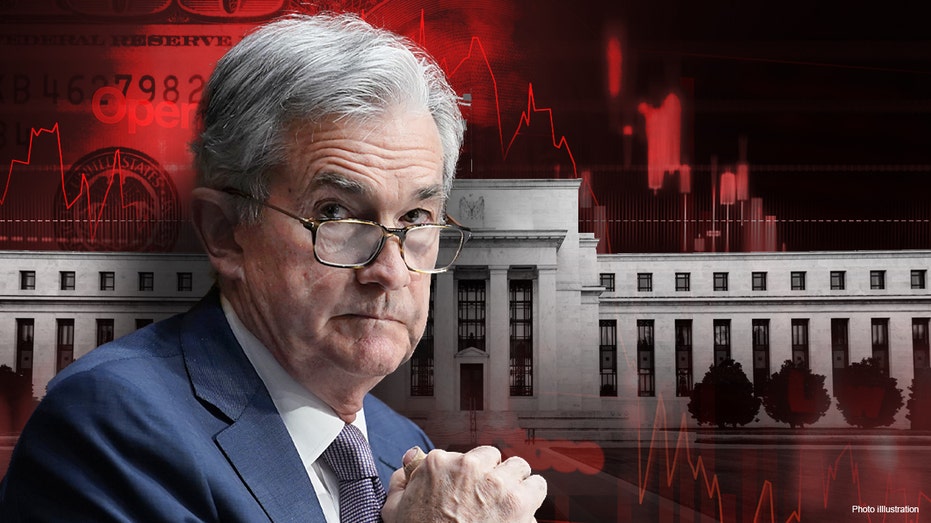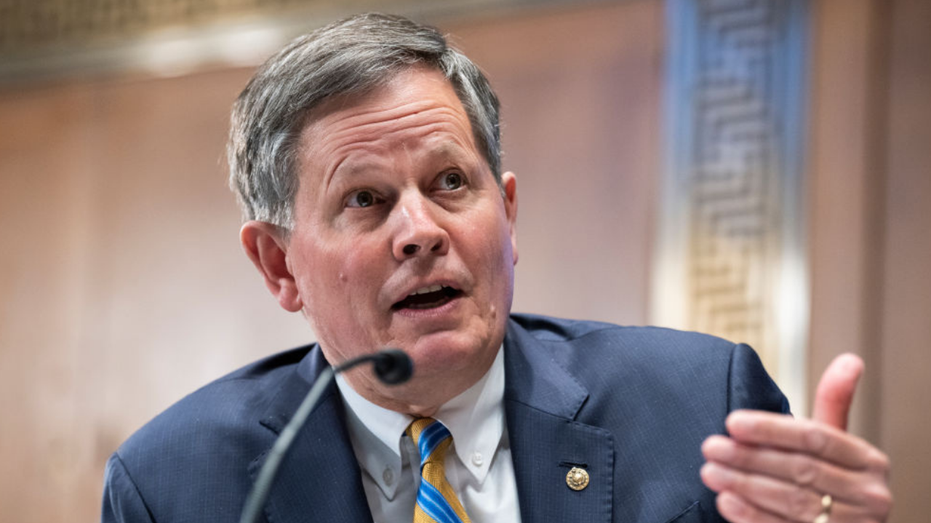CBO’s bleak 2023 outlook: High inflation, slower growth, larger budget deficit
At least a quarter of negative growth expected in 2023
Fed pushing US economy into recession to end inflation: Dan Geltrude
Main Street Asset Management CIO Erin Gibbs and Geltrude & Co. founder Dan Geltrude debate Fed Chair Jerome Powell's inflation strategy on 'Cavuto: Coast to Coast.'
Higher than expected inflation and elevated interest rates will lead to slow economic growth, reduced purchasing power for families and larger budget deficits for the federal government in 2023 and will likely lead to at least one quarter of negative growth next year, the Congressional Budget Office predicted this week.
The CBO said in a Nov. 30 letter to Sen. Steve Daines, R-Mont., that its most recent projections are worse than what it published in May, when the Federal Reserve had just begun to raise rates to tame inflation levels that have not been seen in 40 years.
"Higher interest rates, higher inflation, and slower economic growth lead to less purchasing power for households and increased deficits for the federal government," the CBO said.
JOB, DEBT ‘DOUBLE WHAMMY’ BREWING ‘STORM’ FOR EARLY 2023: ECONOMICS PROFESSOR

Elevated interested rates directly by the Federal Reserve, led by Chairman Jerome Powell, will slow growth in 2023 and could lead to at least one quarter of negative growth, the CBO said. (Photo by AL DRAGO/AFP via Getty Images | istock / Getty Images)
The CBO stopped short of using the word "recession" to describe 2023, but it did acknowledge that gross domestic product adjusted for higher inflation would likely range from -2.0% to 1.8%. It said that "at least one quarter of negative real GDP growth between now and the end of 2023 is likely."
The CBO said growth would pick up in 2024 "as the economy recovers." However, for the next year, higher interest rates are expected to act as an obstacle to growth just as they did in 2022.
"In particular, the federal funds rate — the rate that financial institutions charge each other for overnight loans — is likely to be greater in 2023 and 2024 than, respectively, the 2.4% and 2.6% estimated most recently for the fourth quarters of those years," CBO told Daines. "The revisions stem mainly from greater increases in 2022 in the federal funds rate set by the Federal Reserve and in inflation than CBO had projected."
DEMOCRATS COULD ADD $500B IN NEW DEBT DURING FINAL WEEKS OF CONGRESSIONAL CONTROL

The CBO told Sen. Steve Daines, R-Mont., that economic growth is likely to slow in 2023. (Tom Williams-Pool/Getty Images / Getty Images)
It said household purchasing power has fallen about $5,500 in 2022 because of inflation, while household income has only increased about $3,000. The CBO added that if interest rates remain elevated over the next two years, that can be expected to increase the costs of buying houses and cars, and will weaken the demand for workers in industries such as residential construction.
Slower growth and elevated interest rates will also mostly likely lead to higher federal budget deficits and debt. CBO simulations based on updated economic data indicate budget deficits in 2023 running higher by $200 to $300 billion, and even more in 2024.
The CBO released its letter to Daines just as it released an update on its economic projections for 2023 and 2024, which matched the assessment it offered to Daines.
INFLATION RISKS REMAIN AS CONGRESS EYES BILLIONS IN YEAR-END SPENDING SPREE: BUDGET HAWK

The Federal Reserve is expected to lower interest rates by 2024, according to the CBO. (AP Photo/Manuel Balce Ceneta / AP Newsroom)
"Rates of unemployment, inflation, and interest will probably be higher over the next two years than CBO projected in May 2022," that assessment said. "Slower economic growth and higher rates of unemployment, inflation, and interest increase federal deficits and debt."
CLICK HERE TO GET THE FOX BUSINESS APP
The CBO said its estimate of growth for 2024 ranges from 0.7% to 4.2%. The CBO’s top estimate for inflation in 2023 is 4.6%, and its top estimate for inflation in 2024 is 3.6%.
The CBO’s top estimate for the federal funds rate in 2023 is 6.8%, and 4.6% in 2024.




















